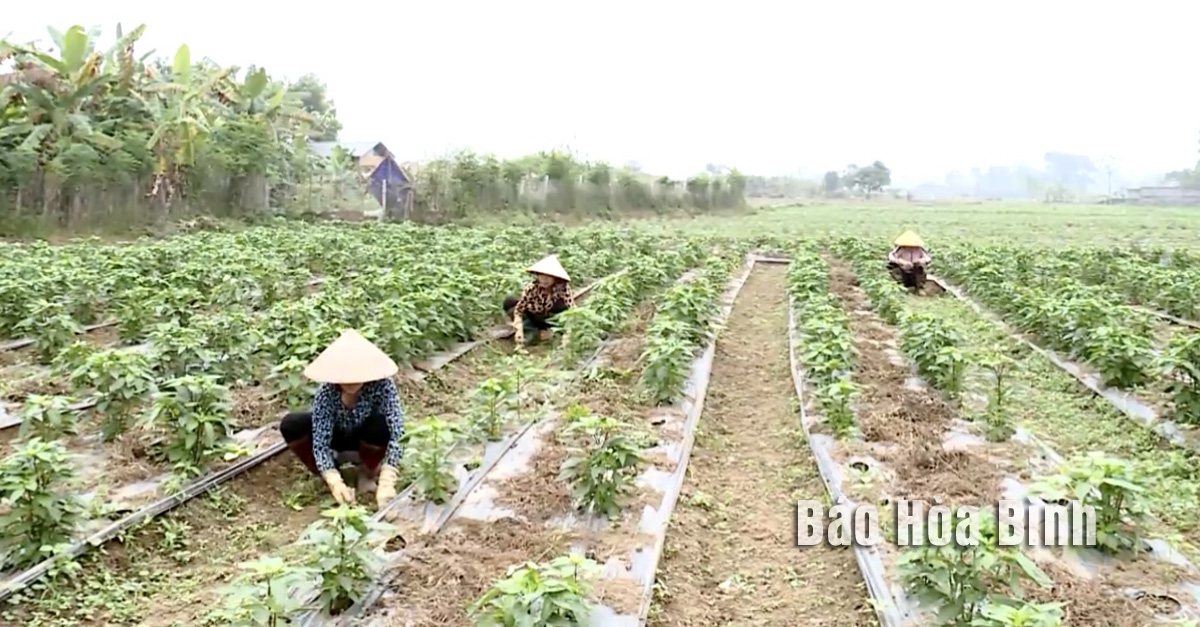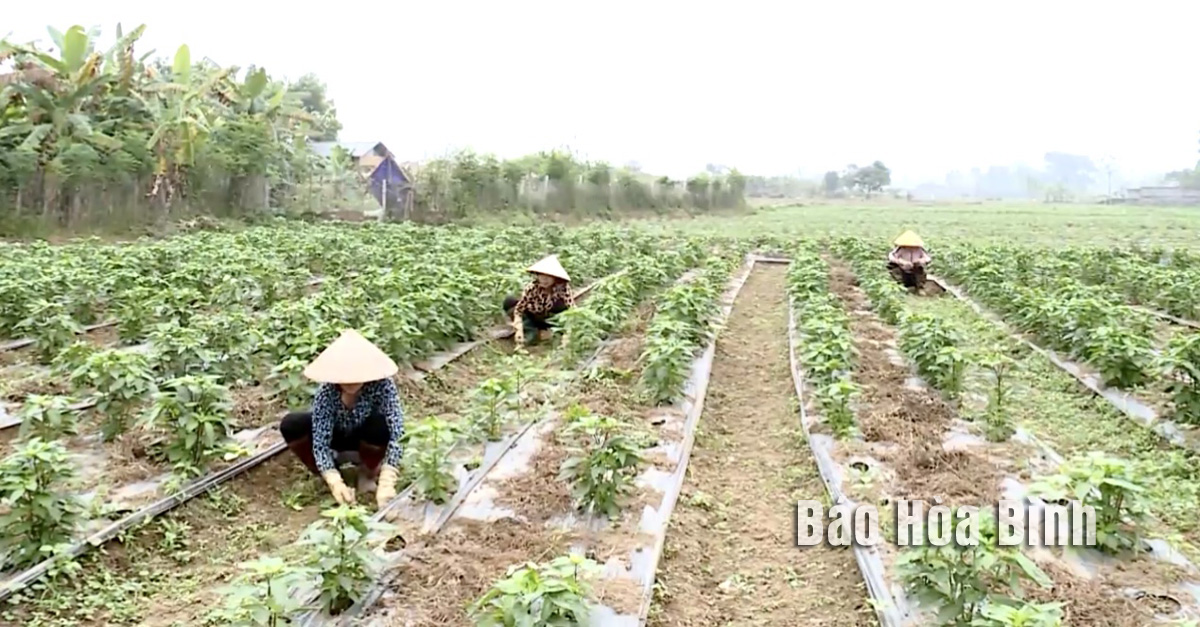
Hoa Binh farmers are investing big in their chilli pepper cultivation areas after the first batch of 7.5 tonnes of pickled chilli peppers was shipped to the Republic of Korea (RoK) by Tien Ngan Trade and Investment Co., Ltd last month.
A chilli
pepper cultivation area in Dan Chu ward, Hoa Binh city.
In recent years, several enterprises have worked
together to develop chilli pepper value chain. After piloting a three-hectare chilli plantation
in residential area No.4, Dan Chu ward, Hoa Binh city, Tien Ngan company spent
nearly 1 billion VND (39,800 USD) on agricultural covers, irrigational system,
seedlings and fertilisers.
Nguyen Le Diep, Director of the firm, said after
shipping products to several foreign markets, his company studied the others,
particularly the RoK which has a great demand for pickled chilli pepper.
After being harvested, chilli peppers were
processed and pickled in accordance to the formula given by Tomas Company – its
partner in the RoK.
Engaging in the chilli pepper production chain
in Hoa Binh city since the end of 2023, Dinh Quoc Chinh, a resident in Dan Chu
ward, has harvested high-quality chilli peppers. He said the chilli pepper is easy to plant as it
has good growth and disease-resistance ability, adding it should be cultivated
on friable soil, protected with agricultural covers and impregnated with
organic fertilisers.
According to Chinh, thanks to its good quality,
farmers have enjoyed stable prices, encouraging local residents to transform
crop production structure to improve income. His family wants long-term
cooperation with their Korean partners and Tien Ngan company so as to promote
cultivation in line with organic standards.
RoK firms said that they need 4,000 tonnes of
pickled chili peppers each year. Therefore, Hoa Binh province plans to expand
its chilli pepper farming area to about 50 hectares for export, mostly in Luong
Son, Lac Thuyand Kim Boi districts as well as Hoa Binh city.
According to Director of the provincial
Department of Cultivation and Plant Protection Nguyen Hong Yen, Tien Ngan
company’s pickled chilli peppers met all requirements of the importer, which is
a robust sign that will boost local agricultural production in the coming time. Exporters are encouraged to invest in production
belts and technologies for intensive processing to enhance productivity and
improve values of their goods, he said.
According to data from the Hoa Binh Provincial Party Committee, the industrial production index for the first six months of 2025 is estimated to have increased by 20% compared to the same period last year. This marks the highest year-on-year growth rate for this period since 2020.
In the first six months of 2025, Hoa Binh province’s export turnover was estimated at 1.145 billion USD, marking an 18.11% increase compared to the same period in 2024. Import turnover was estimated at $ 804 million, a 17.15% increase, which helped the province maintain a positive trade balance.
The lives of the ethnic minority farmers in Tan Lac district have gradually improved thanks to the new directions in agricultural production. This is a testament to the collective strength fostered through the professional associations and groups implemented by various levels of the district’s Farmers’ Union.
With the motto the "product quality comes first,” after nearly one year of establishment and operation, Muong village’s Clean Food Agricultural and Commercial Cooperative, located in Cau Hamlet, Hung Son Commune (Kim Boi district), has launched reputable, high-quality agricultural products to the market that are well-received by consumers. The products such as Muong village’s pork sausage, salt-cured chicken, and salt-cured pork hocks have gradually carved out a place in the market and they are on the path to obtaining the OCOP certification.
In the past, the phrase "bumper harvest, rock-bottom prices" was a familiar refrain for Vietnamese farmers engaged in fragmented, small-scale agriculture. But today, a new spirit is emerging across rural areas of Hoa Binh province - one of collaboration, organisation, and collective economic models that provide a stable foundation for production.
Maintaining growing area codes and packing facility codes in accordance with regulations is a mandatory requirement for agricultural products to be eligible for export. Recently, the Department of Agriculture and Environment of Hoa Binh province has intensified technical supervision of designated farming areas and packing facilities to safeguard the "green passport" that enables its products to access international markets.



